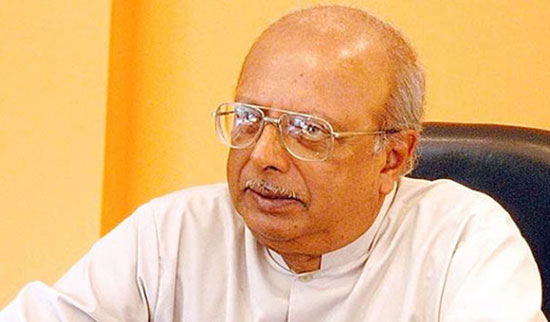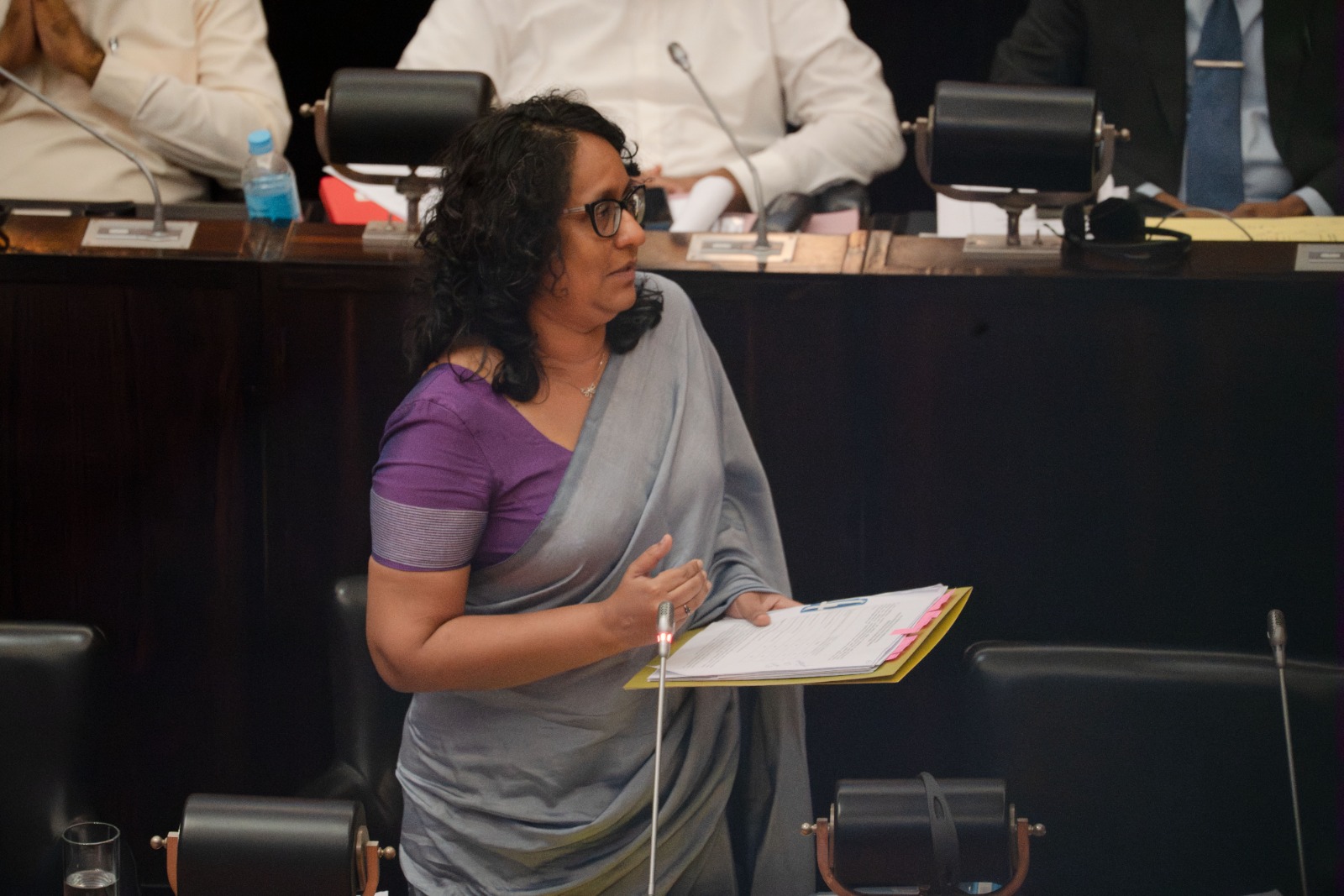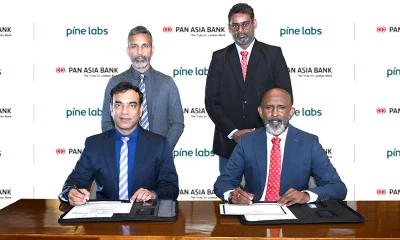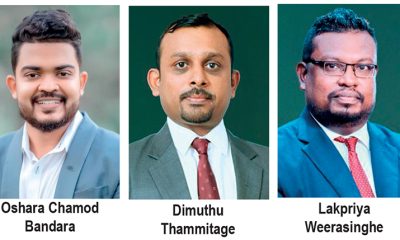News
Have we got our economic and Covid-19 priorities right?

Sri Lanka has over 50% living below the poverty line, and the malnutrition rate is estimated to be 18%. It is obvious that first priority should be given to relief of hunger. Then to fighting the COVID 19 epidemic, a health care problem. It is after relieving these that money should be devoted to infrastructure like highways. But in Sri Lanka it appears to be the other way round.
Health care is a priority, but even on this aspect, are we acting sensibly? In the Daily News of 15.07.21, the Director of the Health Promotion Bureau is quoted as saying that the number of COVID 19 cases has dropped to 6.2% on the basis of random PCR tests, from an earlier figure of 10%.
The Epidemiology Unit has carried out about 7,000 random PCR tests daily covering all MOH divisions in the country. The best public health measure is the observance of the three health rules – wearing masks, observing social distancing and washing the hands with soap and water after touching anything touched by others. This has been going on from the outset and is being successful at little or no cost.
As nearly 80% of COVID-19 infections are asymptomatic or extremely mild, they develop immunity and do not need any vaccination. Vaccination is only indicated to the vulnerable group – elderly (over 60 years), those with serious underlying diseases e.g. respiratory, cardiac, diabetes mellitus, cancers etc. This group of about 20% of the population should be vaccinated, commencing with the oldest age group, as they are prone to develop and some of them can die. The occasional occurrence of a case in a child fits into the pattern associated with several virus diseases called Kawasaki syndrome. As such, there is no need to immunize children, taken as a group.
An intensive program is now underway to vaccinate all those above 30 years in every district in Sri Lanka. 36% of this target population has received the first dose already and 21% both doses. A large mass of expensive vaccines from different countries are being rushed into the country as if we are faced with a life or death struggle.
By the end of June, Sri Lanka had only 277,519 cases with 3,574 deaths (1.4%). A social scientist visited Kanatte cemetery a few days ago and inquired whether there had been an increase in deaths since the COVID outbreak began and she was able to confirm that no such spike had occurred. Why then this great hurry to vaccinate? Even in the USA, no doctors and other health care workers have died of COVID- 19.
The vaccine industry which is in decline has seen a golden opportunity to expand and profit. An intensive campaign was carried out in the USA to frighten the people and to compel them to take the vaccine, which had already been mass produced. It also provided a good opportunity to test new varieties of vaccines e.g. the mRNA vaccines (like the Pfizer and Moderna COVID 19 vaccines from the USA), which are really the introduction of genetic material to get our body cells to produce the spike protein alone of the virus, not the whole virus.
As we all know, the introduction of foreign genetic material is considered to be unsafe and future outcomes are uncertain. That is why the European Union refused to import genetically modified (GM) foods from South America. There were campaigns in the USA questioning the safety and efficacy of the COVID vaccines. Sales in the USA and West have not been great, as questions have been raised by scientists.
In North America and Europe, it was because of the big spike of cases, specially approaching winter that the COVID-19 phobia gained ground, and “emergency use” was resorted to. There is no such emergency situation in Sri Lanka. Further, Asian and African countries that have used BCG as a protection against TB have been shown to have benefited from it and have little COVID 19.
The vaccine is also expensive and many people in the USA refused to buy it, specially the poor blacks and browns. The vaccine industry had to find a market for this massive unsold surplus. What better than to look abroad for markets among those already mentally conditioned to accept the vaccine as a necessity? It is not difficult to buy over officials and decision- makers and get the local private sector to come in with suitable inducements. This is what we are seeing in many countries world-wide, and here in Sri Lanka too.
Governments tend to fall in line in the face of such intensive campaigning.. The COVID phobia is there among the people to be exploited and the environment and the partners are also in place, so why not exploit it?
The vaccine producers themselves admit that the optimal time for boosters is still being worked out to get full protection. The side effects are also being looked for and are not fully known. This particularly applies to the long term effects. The protection will be short term and in all probability annual boosters will be required. This is going to be a considerable cost.
On the political side, the lockdown policy practiced in Sri Lanka has no real benefit from a medical point of view, and is only increasing poverty and disrupting the economy, leading to job losses. We need more informed debate on this whole issue and then come out with what really needs to be done. Protests against vaccination should be allowed, as much as for vaccination.
Prof. Tissa Vitarana
News
INS GHARIAL departs island

The Indian Naval Ship (INS) GHARIAL which made a port call in Colombo, departed the island on 06 Feb 26.
The Sri Lanka Navy bade a customary farewell to the departing ship at the Port of Colombo, following naval traditions.
During the ship’s port call, the crew took a sightseeing tour of key attractions in Colombo.
The visit also featured the handover of ten temporary Bailey Bridges, which were brought by INS GHARIAL, in coordination with the High Commission of India in Sri Lanka.
News
Stop the collection of funds from parents at school level for Smart Boards — PM

Prime Minister Dr. Harini Amarasuriya stated that the Ministry of Education has already commenced the distribution of Smart Boards required for the new education reforms, and that the collection of funds from parents at school level for this purpose must be stopped immediately. She further emphasized that no decision has been taken to curtail free education or to close the Jayewardenepura Faculty of Dental Sciences.
The Prime Minister made these remarks in response to a question raised in Parliament on Thursday [05th February] by the Leader of the Opposition, Sajith Premadasa.
Elaborating further, the Prime Minister stated,
“Although the Leader of the Opposition has not traditionally upheld free education as a policy, I appreciate your stance on the matter at this juncture. However, I urge that questions should not be raised based on social media content or unverified rumours in Parliament. No decision has been taken to curtail free education or to close the Jayawardenepura Faculty of Dental Sciences. The Medical Faculty of the Wickramarachchi University of Indigenous Medicine had commenced operations without regulatory approval and had introduced course work, resulting in students being placed in a vulnerable situation. Necessary action is currently being taken based on the recommendations of a report submitted by an expert committee appointed to examine the issue. This this is not a political decision, but one guided by expert opinion”.
“Arrangements are underway to distribute the required Smart Boards to schools during this year, and there is no need to collect funds from parents for this purpose. If any such collections are taking place, they must be stopped immediately. The Secretary to the Ministry of Education has already issued a directive instructing schools not to collect funds from parents”.
“The subject Information Technology will not be taught as a separate subject for Grades 1 to 5. However, recognizing the need to prepare students for a globally advancing technological world, discussions have been initiated based on expert advice on how to provide age-appropriate technological awareness to students. Decisions will be made after carefully considering child protection concerns and expert recommendations. The curriculum-related decisions will not be made politically, but by subject experts.
Based on the requests made by the universities and higher education institutions recruitment for essential academic vacancies is currently being carried out under the Cabinet approval. Although thirty years have passed since the establishment of the teacher service, further measures are required to enhance its quality. Existing issues relating to teacher promotions, considering the practical difficulties in evaluation processes and non-compliance with service minute provisions are being addressed alongside other challenges. The government is presently focused on formulating a systematic plan to ensure quality education.”
Responding to a question raised by the Member of Parliament Kader Mastan, the Prime Minister stated,
“Several programmes have been introduced based on government policy decisions to fulfill the basic needs of schoolchildren. These include the provision of school textbooks, uniforms, and the “Suraksha” health insurance scheme. Additionally, voucher schemes have been introduced to support the purchase of sanitary products for girls in Grades 6 to 13. Midday meals are also being provided for primary school students, and financial assistance is extended to students who pass the Grade 5 Scholarship Examination but do not receive bursaries. The Ministry of Education is in the process of gathering further information with the intention of expanding these programmes”.
The Prime Minister also announced that the 2025 G.C.E. Ordinary Level Examination is scheduled to be held from February 17 to 26. Although this period coincides with the observance of Ramadan, relevant authorities have confirmed that it will not pose an obstacle to the conduct of the examination. Furthermore, it has been decided to hold the Grade 5 Scholarship Examination and the G.C.E. Advanced Level Examination before August each year, and the G.C.E. Ordinary Level Examination in December. From 2026 onwards, efforts will be made to conduct examinations in accordance with this revised annual examination calendar.
[Prime Minister’s Media Division]
News
Steps have been taken to modernize Technical Colleges in all 25 Districts – PM

Marking a major transformation in Sri Lanka’s vocational education sector, the Government has decided to develop and modernize 25 technical colleges located across all the 25 districts in line with contemporary global standards.
It was revealed at a special discussion held on 06th of February at the Parliamentary Complex, chaired by the Minister of Education, Higher Education and Vocational Education, Prime Minister Dr. Harini Amarasuriya, together with the Deputy Minister of Vocational Education Nalin Hewage.
Addressing the meeting, the Prime Minister emphasized that these development initiatives should not be limited merely to providing vocational skills, but should also place strong emphasis on the mental health and overall well-being of the youth.
Accordingly, the Prime Minister stressed the importance of establishing modern hostels, cafeterias, and healthcare facilities; designing both internal and external environments in a manner that offers recreational and aesthetic experiences while promoting mental well-being; and developing a distinct identity for each technical college so that they can be clearly recognized as unique institutions, separate from other educational establishments.
Speaking at the discussion, Deputy Minister of Vocational Education Nalin Hewage stated that development work at 23 technical colleges could be commenced in the near future in order to enhance the human resources required for national development. He further noted that it is expected to obtain the labour contribution and assistance of the Tri-Forces for these construction and modernization activities.
The discussion was attended by Deputy Minister of Defence Major General Aruna Jayasekara, Secretary to the Ministry of Defence Air Vice Marshal Sampath Thuyacontha, Secretary to the Ministry of Education Nalaka Kaluwewa, along with the officers from the Tri-Forces.
[Prime Minister’s Media Division]
-

 Business4 days ago
Business4 days agoSLIM-Kantar People’s Awards 2026 to recognise Sri Lanka’s most trusted brands and personalities
-

 Business6 days ago
Business6 days agoAltair issues over 100+ title deeds post ownership change
-

 Business6 days ago
Business6 days agoSri Lanka opens first country pavilion at London exhibition
-

 Business5 days ago
Business5 days agoAll set for Global Synergy Awards 2026 at Waters Edge
-

 Business4 days ago
Business4 days agoAPI-first card issuing and processing platform for Pan Asia Bank
-

 Business6 days ago
Business6 days agoESOFT UNI Kandy leads the charge in promoting rugby among private universities
-

 Editorial2 days ago
Editorial2 days agoAll’s not well that ends well?
-

 Features2 days ago
Features2 days agoPhew! The heat …













